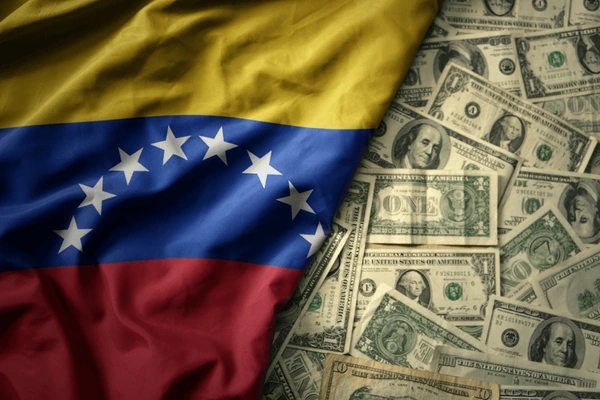
The Biden administration has issued a stern warning to Venezuela: if the country maintains its ban on opposition candidate María Corina Machado from participating in the presidential election, the U.S. will reimpose sanctions on Venezuela’s energy sector. This decision, conveyed by two U.S. officials who chose to remain anonymous, potentially dampens the recent progress made in thawing relations between the two historically adversarial nations.
The U.S. has set a critical deadline, allowing a six-month suspension of sanctions to lapse in April unless Venezuela reverses its stance on Machado’s candidacy. Additionally, the U.S. is contemplating further actions. National Security Council spokesperson John Kirby emphasized the need for Venezuela to permit opposition members to run for office and to release political prisoners. The decisions Venezuela makes now will heavily influence the U.S. response by April, Kirby stated in a Monday briefing.
This potential policy shift follows Venezuela’s top court’s recent decision to uphold the ban against Machado, along with the imprisonment of some of her aides. Analysts who have been monitoring the thaw in U.S.-Venezuela relations did not anticipate such a severe response as the reinstatement of sanctions.
In October, as a sign of goodwill, the Biden administration had authorized transactions within Venezuela’s oil and gas sector. This move came after Venezuelan President Nicolas Maduro’s government began negotiations with some opposition members. The White House National Security Council has now clarified that unless Maduro’s regime allows all presidential candidates to compete in this year’s election, the U.S. will not renew the license for these transactions in April.
The Treasury Department has yet to issue a statement on this matter.
The decision to potentially delay the restoration of sanctions until April provides a window for diplomatic negotiations with Maduro’s regime and the opposition to facilitate Machado’s inclusion on the presidential ballot.
On Monday, Jorge Rodríguez, President of Venezuela’s National Assembly and an ally of Maduro, announced that the government had accepted an invitation from Norwegian mediators to meet with the political opposition. This meeting aims to revisit the agreement reached in October and give the negotiation process “another try.”
Following these developments, oil prices remained relatively stable, and there was a notable impact on Venezuela’s government bonds and the state oil company PDVSA’s bonds. According to traders and Bloomberg’s indicative price data, government notes due in 2027 fell 2.2 cents to 19.18 cents on the dollar. Meanwhile, PDVSA bonds due in 2026 experienced a one-cent drop.
The U.S.’s stance comes at a crucial juncture in Venezuela’s political landscape. The decision to potentially reinstate sanctions reflects a broader strategy of using economic pressure to influence political outcomes in Venezuela, particularly in ensuring free and fair elections. The U.S. aims to leverage its economic influence to support democratic processes and human rights in Venezuela, a country that has faced significant political turmoil and economic challenges in recent years.
The situation in Venezuela remains complex, with the country grappling with economic difficulties and political instability. The U.S.’s decision to potentially reintroduce sanctions highlights the delicate balance between applying pressure to promote democratic values and maintaining diplomatic relations. As the April deadline approaches, the international community will be closely watching how the situation unfolds, particularly regarding the participation of opposition candidates in the Venezuelan presidential election.
In summary, the Biden administration’s conditional stance on Venezuela reflects a commitment to supporting democratic processes and human rights, using economic measures as a tool for political influence. The coming months will be pivotal in determining the trajectory of U.S.-Venezuela relations and the future of democracy in Venezuela.
Featured image credit: esfera via Shutterstock
